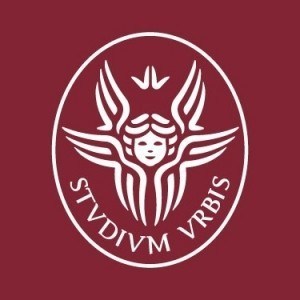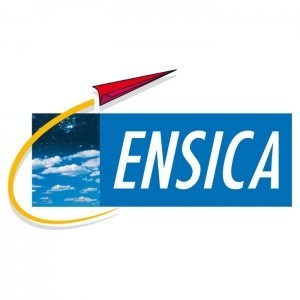Photos of university / #universiteitleiden
The Master's in Industrial Ecology at Leiden University offers a comprehensive and multidisciplinary approach to understanding and solving complex environmental challenges faced by modern society. This programme is designed for students who are passionate about creating sustainable solutions that balance ecological integrity, economic development, and social equity. Through a rigorous curriculum, students gain in-depth knowledge of life cycle analysis, resource management, environmental modeling, and policy analysis, enabling them to evaluate and improve the sustainability performance of products, processes, and systems across various industries. The programme emphasizes the integration of scientific principles, engineering techniques, and societal considerations to develop innovative strategies for resource efficiency, waste reduction, and circular economy practices. Students will have the opportunity to participate in cutting-edge research projects, collaborate with industry partners, and engage with policymakers to translate scientific insights into practical applications. The programme also fosters critical thinking, problem-solving skills, and the ability to communicate complex sustainability issues effectively. With a strong international focus, students benefit from Leiden University’s global network and diverse academic community, preparing them for careers in academia, consulting, industry, governmental agencies, and non-governmental organizations. The Master's in Industrial Ecology equips graduates with the knowledge and skills necessary to drive sustainable development initiatives and contribute meaningfully to addressing pressing global environmental challenges now and in the future.
The Master's in Industrial Ecology at Leiden University offers a comprehensive and interdisciplinary program designed to prepare students for addressing complex environmental challenges through sustainable solutions. This program integrates principles from engineering, environmental sciences, and social sciences to examine the interactions between human activities and natural systems. Throughout the course, students will explore key topics such as resource management, lifecycle assessment, sustainable design, circular economy, and policy analysis. The curriculum emphasizes both theoretical understanding and practical application, enabling students to develop innovative strategies for reducing environmental impact. Students will engage in cutting-edge research projects, case studies, and interdisciplinary teamwork, fostering skills necessary for careers in academia, consultancy, government, or industry. The program also encourages critical thinking about global sustainability issues and the development of effective policies to promote sustainable development at local, national, and international levels. With access to Leiden University’s extensive facilities and networks, students will have opportunities for internships, international exchanges, and collaboration with industry partners. Graduates of this program will be equipped to analyze environmental data, design sustainable products and processes, and contribute to the transition toward a more sustainable society. Whether you aspire to work in environmental consulting, policy-making, or research, the Master's in Industrial Ecology offers a strong foundation for making a positive impact on the environment and society. The program's flexible structure allows students to tailor their studies according to personal interests and career goals, culminating in a research thesis that demonstrates their expertise in tackling real-world sustainability challenges.
Admission requirements
See website www.unileidenmasters.nl
Other requirements
- minimum kennis (ISPAC: overige vereisten) Zie www.unileidenmasters.nl voor meer informatie
- minimum kennis (ISPAC: overige vereisten) See website www.unileidenmasters.nl
- vooropleiding (ISPAC: vereiste vooropleiding) Zie www.unileidenmasters.nl voor meer informatie
- vooropleiding (ISPAC: vereiste vooropleiding) See website www.unileidenmasters.nl
Funding options for the Industrial Ecology master's programme at Leiden University include a variety of scholarships, grants, and financial aid opportunities aimed at both domestic and international students. Prospective students are encouraged to explore the university’s scholarship portal for available merit-based scholarships, which may cover partial or full tuition fees. Leiden University offers several institutional scholarships such as the Leiden University Excellence Scholarships (LEX-S), which are awarded based on academic merit and are applicable to various master's programmes, including Industrial Ecology. Additionally, students from certain countries may be eligible for government-funded scholarships like the Holland Scholarship, which supports talented students from outside the European Economic Area.
International students can also consider funding options through their home governments or private foundations, some of which may provide financial support specifically for studies in sustainability, environmental sciences, or related fields. The university’s financial aid office provides comprehensive guidance on navigating these opportunities and applying for external funding sources. For students requiring additional financial assistance, there are also part-time work opportunities on and around campus that comply with visa regulations, allowing students to supplement their income during their studies. Furthermore, programme-specific financing details, such as tuition fees, are published on the official Leiden University website, along with information on instalment plans and payment deadlines.
It is recommended that students begin their financial planning early and consult the university’s official resources for the most accurate and up-to-date information. International students should also consider exchange programmes and partnerships that may include funding options or reduced tuition fees. Finally, some students may qualify for student loans or aid through their home countries to support their studies abroad. Overall, Leiden University is committed to making education accessible through a broad spectrum of financial support mechanisms tailored to diverse student needs.
Industrial Ecology at Leiden University offers an interdisciplinary approach to understanding and optimizing the interactions between human activities and the natural environment. The programme focuses on the development of sustainable solutions for resource management, waste reduction, and environmental impact minimization. Students gain comprehensive knowledge of ecological principles, systems thinking, and lifecycle analysis, enabling them to analyze complex environmental issues from multiple perspectives. The curriculum combines theoretical coursework with practical applications, including case studies, projects, and internships, to prepare graduates for careers in academia, industry, or governmental organizations. Coursework may cover topics such as sustainable design, resource flow analysis, environmental policy, and technological innovations. The programme emphasizes critical thinking, problem-solving skills, and the ability to communicate complex environmental data effectively. Leiden University's renowned research culture and collaborative environment provide students with access to cutting-edge resources and expert faculty. Graduates are equipped to contribute to the development of sustainable practices and policy-making, helping to address global environmental challenges. The programme typically aims to foster a forward-looking mindset, encouraging students to innovate and lead initiatives in sustainable development. It is suitable for students with backgrounds in environmental science, engineering, economics, or related disciplines seeking to deepen their understanding of ecological systems and human-environment interactions. The duration of the master's degree is generally one to two years, depending on the specific structure and student's prior education. Upon completion, students receive an MSc degree, opening pathways to research positions, consultancy roles, or further academic pursuits in related fields. Leiden University’s emphasis on internationalization and interdisciplinary learning ensures students are prepared to work in diverse cultural and professional settings worldwide.










